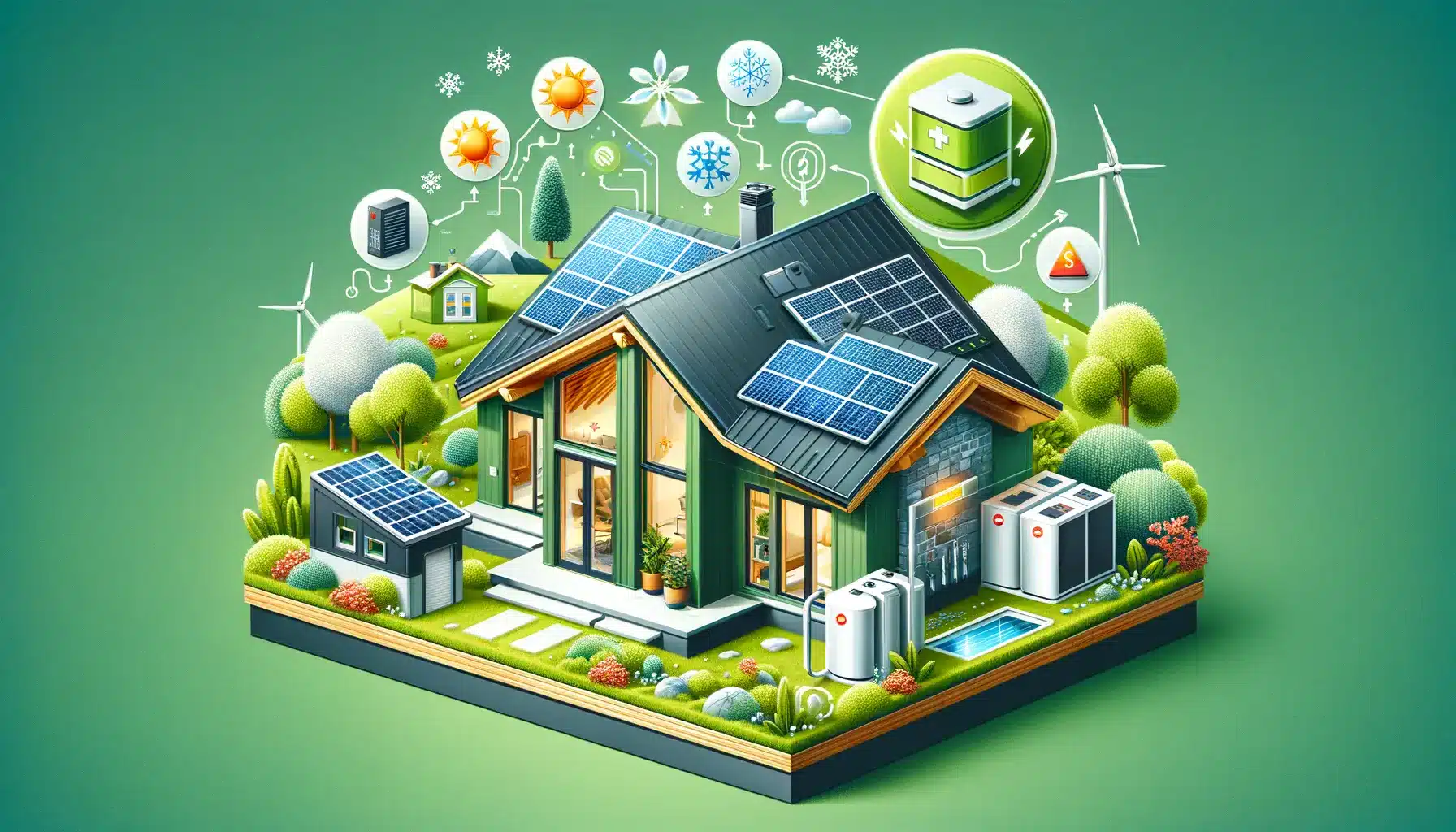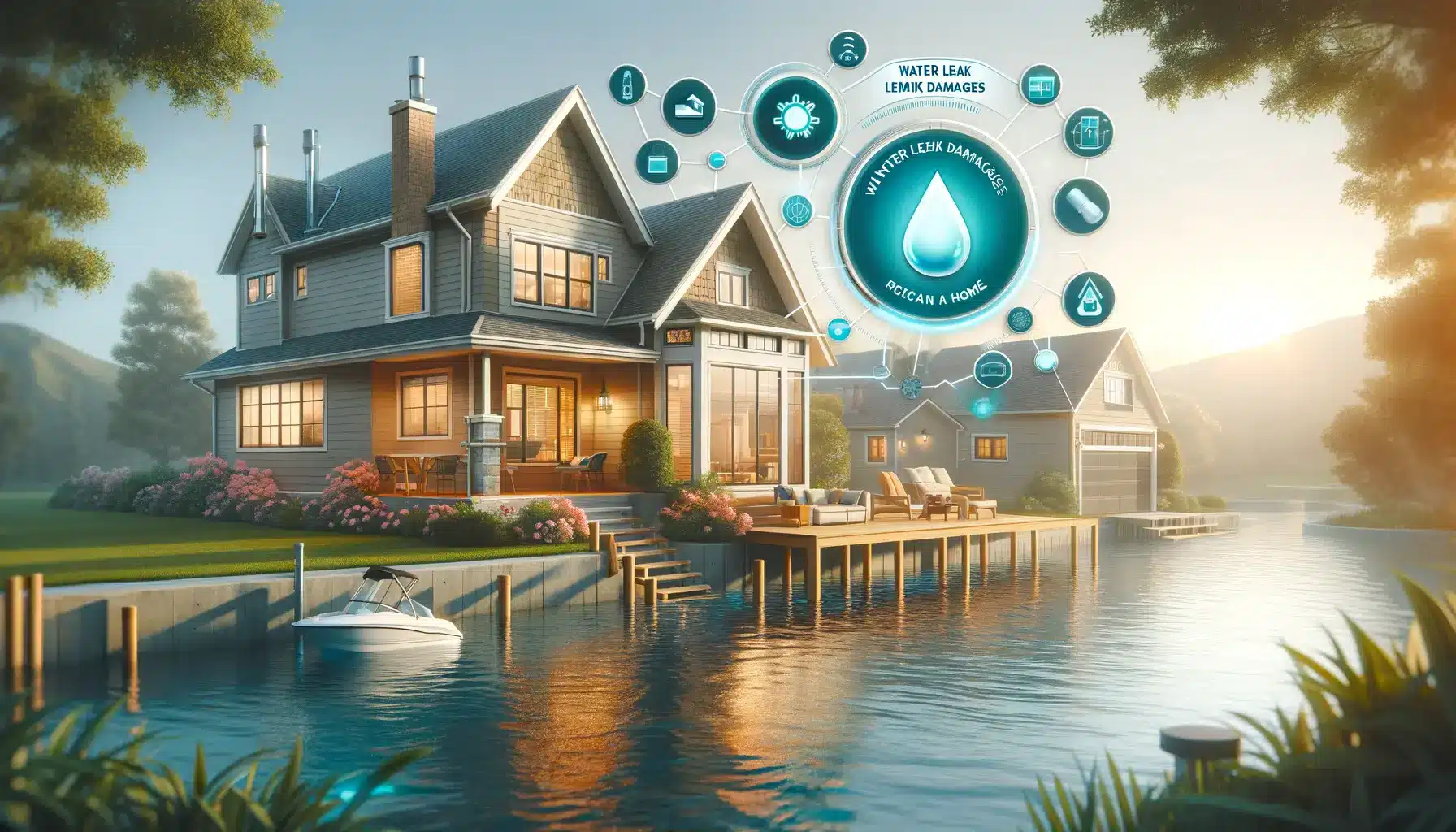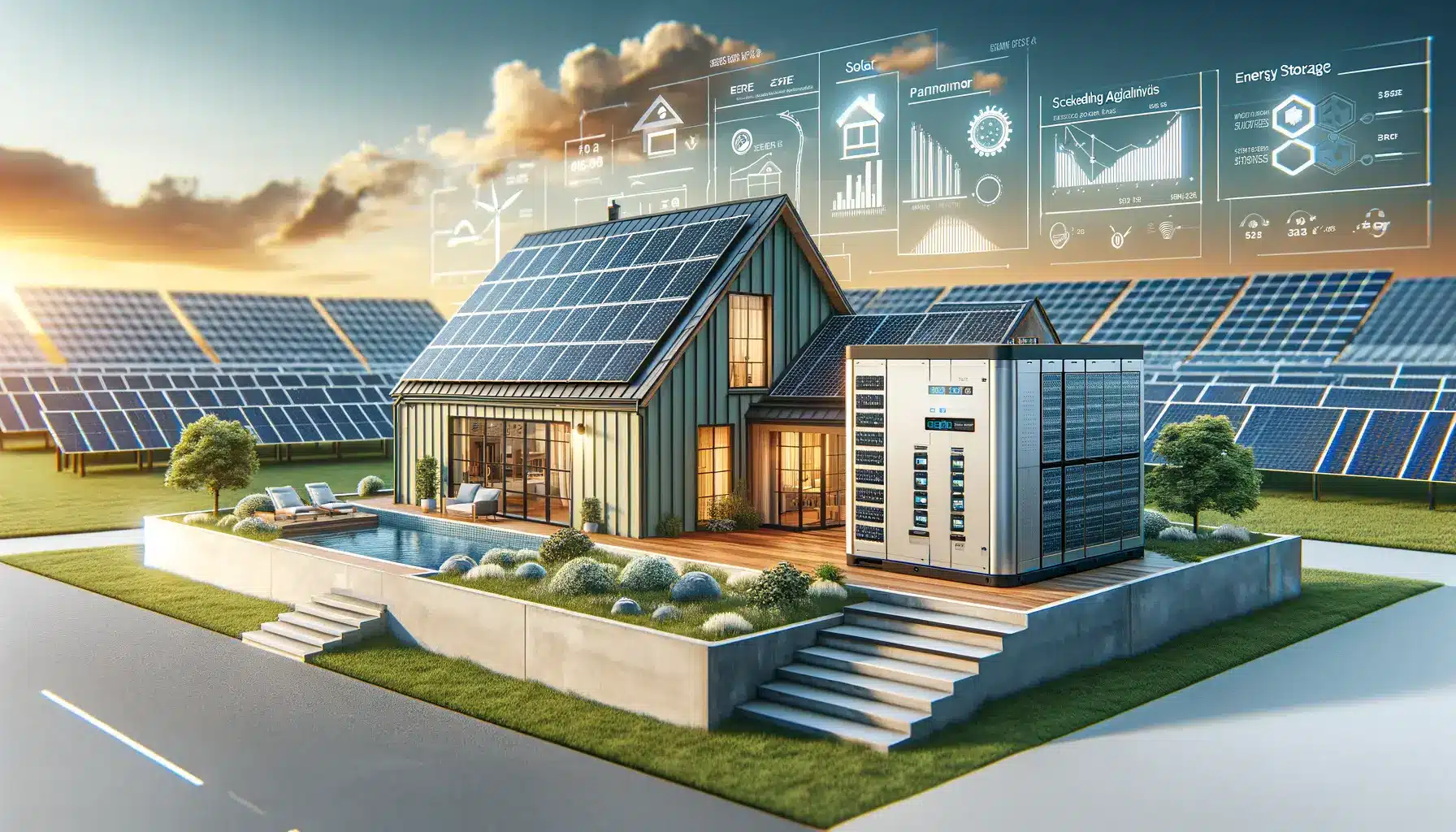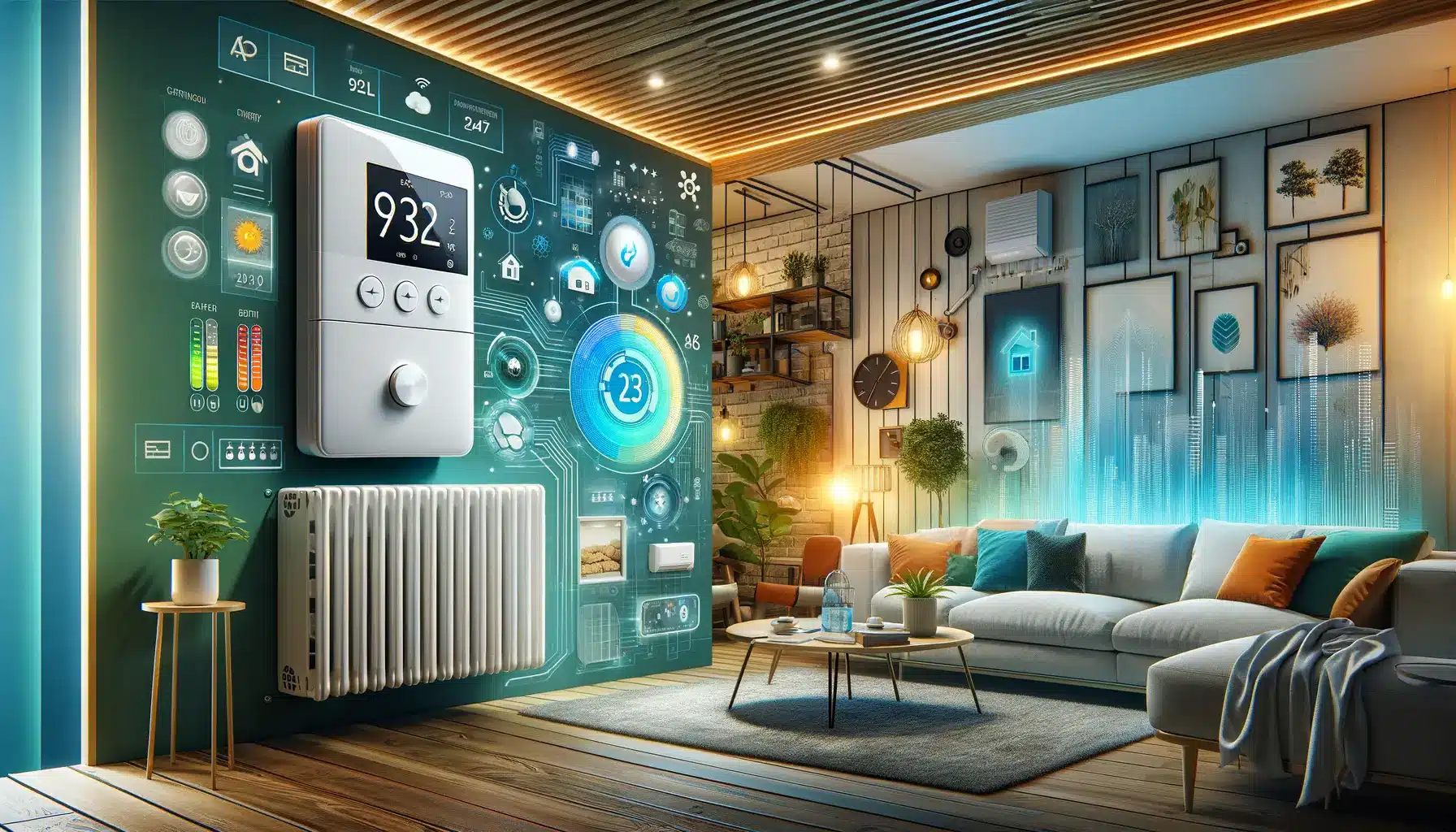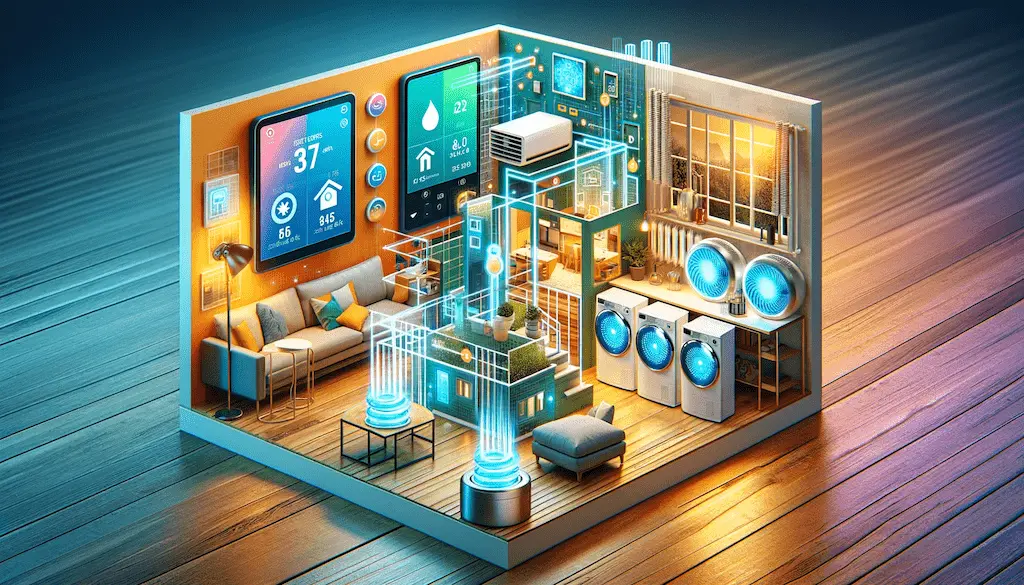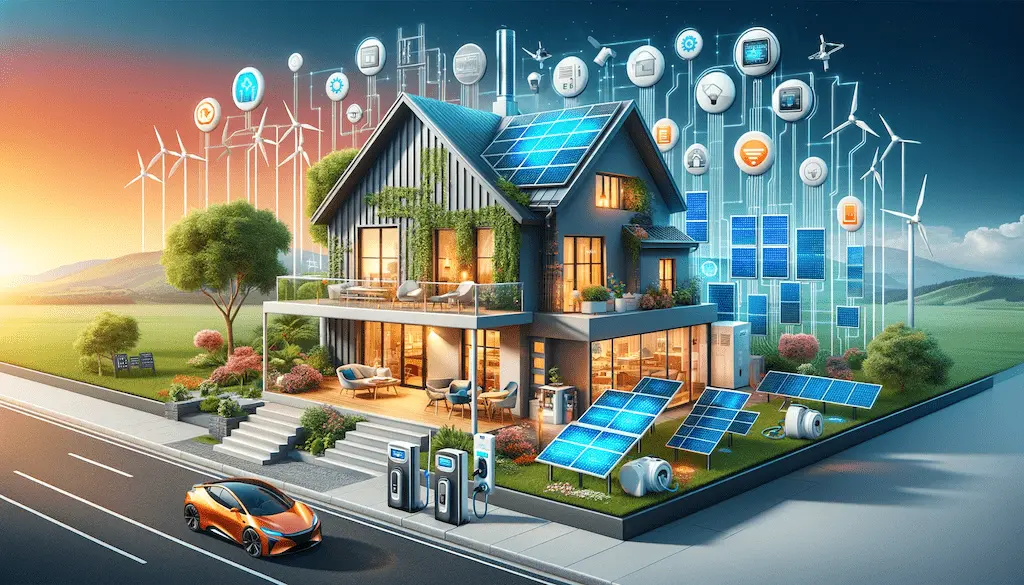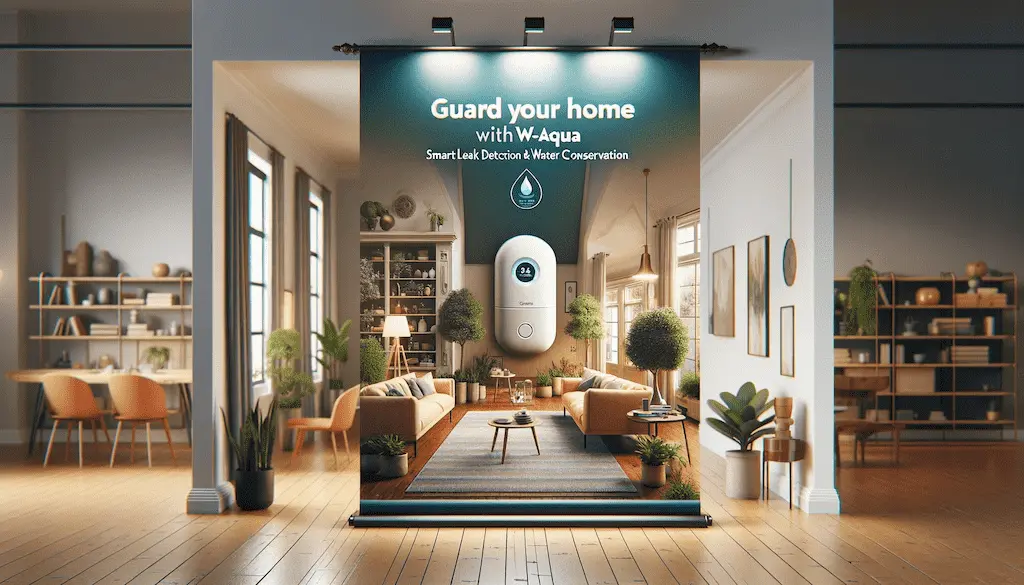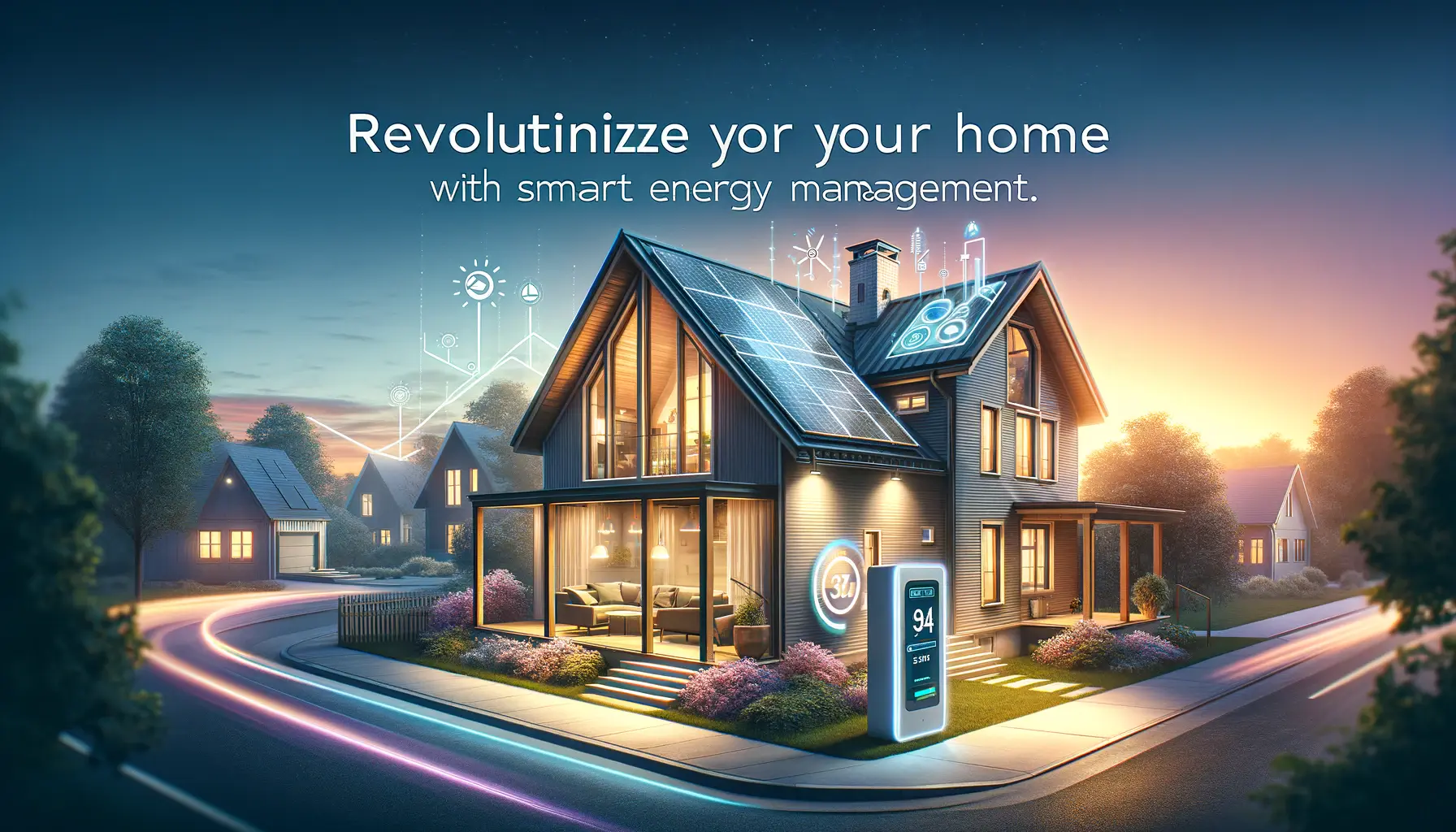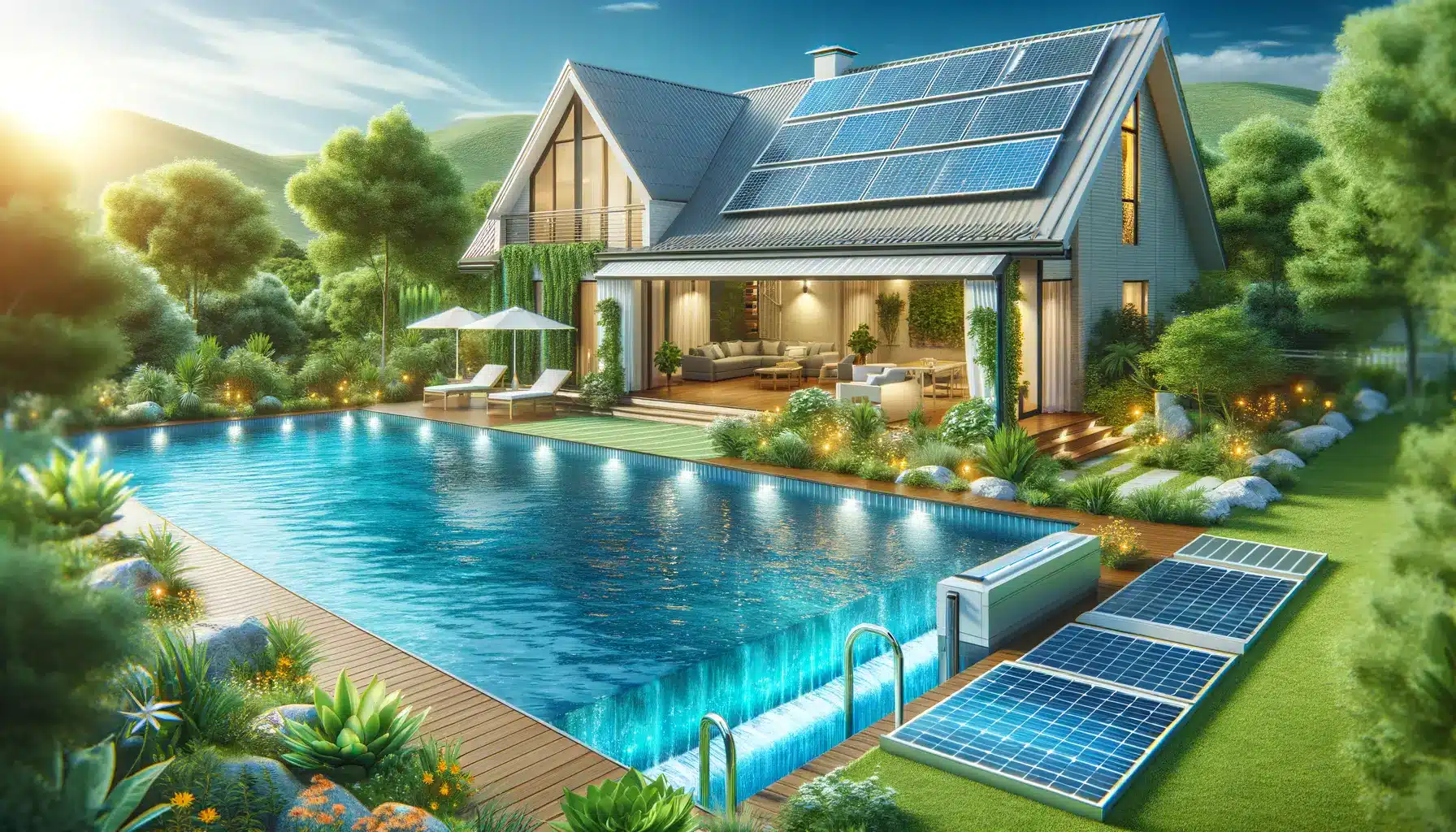
In the warmth of summer, a home swimming pool becomes a sanctuary of relaxation and joy. Yet, behind the serene surface lies a complex system with significant demands for water and energy. The environmental footprint of maintaining crystal-clear pool water, at a comfortable temperature, can be substantial, leading to increased utility bills and resource depletion. Recognizing the importance of efficient pool management is essential, not only for cost savings but also for environmental conservation. This comprehensive guide explores the intricacies of home swimming pool maintenance, highlighting common challenges and introducing effective strategies for water and energy conservation.
Identifizierung häufiger Probleme der Wassereffizienz
Wasserverdunstung: Der stille Übeltäter
Water evaporation is the principal cause of water and heat loss in swimming pools. Factors such as exposure to sun, wind, and low humidity levels can exacerbate evaporation rates, leading to a significant decrease in water levels and the dissipation of heat energy. The consequences are twofold: an increased need for water to maintain levels and a higher demand for heating to keep the water at a comfortable temperature.
Lecks: Die versteckte Bedrohung
Unnoticed leaks in the pool’s structure or plumbing system can lead to severe water wastage. These leaks may stem from cracks in the pool’s foundation, deteriorating pipes, or failing equipment seals. Often, these issues go undetected until they have caused significant loss, underscoring the need for vigilant maintenance and early detection.
Ineffiziente Heizsysteme: Ein Energiefresser
Heating a swimming pool can consume a considerable amount of energy, especially in cooler climates or during the colder months. Traditional gas or electric heaters, while effective, are often not the most efficient methods of heating pool water. The reliance on such systems can lead to skyrocketing energy bills, impacting both the homeowner’s wallet and the environment.
Filter- und Pumpensysteme: Übersehene Energieverbraucher
The heart of a swimming pool’s cleanliness and clarity lies in its filtration and pump system. However, outdated or improperly maintained equipment can become a significant source of energy consumption. Continuous operation, coupled with inefficiency due to age or disrepair, can result in unnecessarily high energy use.
Technologische Lösungen für Überwachung und Erhaltung
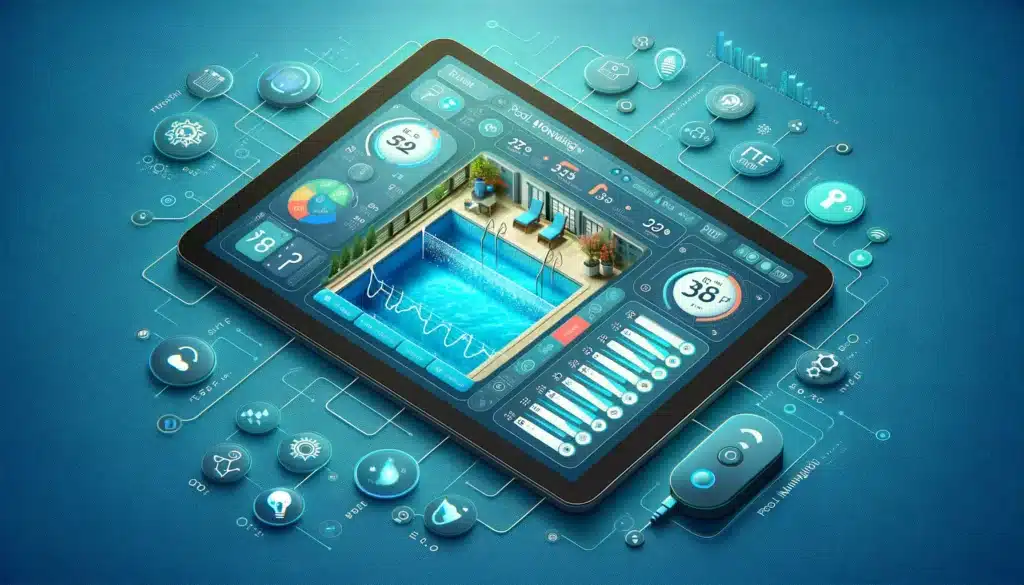
Intelligente Pool-Monitore: Effizienz im Blick
The integration of Internet of Things (IoT) devices in home swimming pools introduces a new era of smart pool management. Smart pool monitors offer real-time tracking of water quality, temperature, and other critical parameters. These devices enable homeowners to maintain optimal pool conditions efficiently, alerting them to changes that may indicate issues such as evaporation, leaks, or chemical imbalances.
Leckerkennungssysteme: Frühwarnmechanismen
Advancements in leak detection technology have provided pool owners with tools to identify leaks early, preventing significant water loss. Modern systems utilize acoustic sensors, pressure differentials, and moisture detection to pinpoint the source of leaks, allowing for timely repairs and conservation of water resources.
Energieeffizientes Heizen: Natürliche Ressourcen nutzen
Transitioning to solar heaters and heat pumps for pool heating presents an opportunity to reduce energy consumption significantly. Solar heaters utilize renewable energy from the sun, offering a cost-effective solution for warming pool water. Heat pumps, on the other hand, extract heat from the air or ground, providing efficient temperature regulation with lower energy usage.
Automatische Poolabdeckungen: Bekämpfung der Verdunstung
One of the simplest yet most effective solutions for reducing water evaporation and retaining heat is the use of automated pool covers. By covering the pool when not in use, these systems can drastically reduce the rate of evaporation, maintaining water levels and temperature without additional energy expenditure.
Umsetzung von Strategien zur Wassereffizienz und -einsparung
Routinekontrollen: Die Grundlage für die Gesundheit Ihres Pools
Establishing a routine for regular pool checks is essential. These checks should encompass monitoring water levels to detect potential leaks, assessing the condition of the pump and filtration system, and ensuring that heating systems are functioning efficiently. By staying ahead of maintenance, homeowners can prevent minor issues from escalating into costly repairs.
Regelmäßige Wartung: Verlängerung der Gerätelebensdauer
The longevity and efficiency of pool equipment significantly depend on regular maintenance. This includes cleaning or replacing filters to ensure optimal filtration, inspecting pumps and heaters for signs of wear, and keeping the pool area clean to reduce the load on the filtration system. Proactive maintenance not only conserves water and energy but also extends the life of the pool equipment.
Erneuerbare Energiequellen: Ein Sprung in Richtung Nachhaltigkeit
Incorporating renewable energy sources, like solar panels, to power pool heating systems or pumps is a transformative step towards eco-friendly pool management. Solar energy, being both sustainable and cost-effective, can significantly reduce the reliance on conventional energy sources, lowering operational costs and diminishing the environmental footprint of maintaining a swimming pool.
Erweiterte Tipps für Poolbesitzer
Landschaftsgestaltung zur Reduzierung der Verdunstung
Strategic landscaping around the pool area can serve as a natural barrier against wind, thereby reducing evaporation rates. Planting trees, shrubs, or installing fences as windbreaks not only enhances the aesthetic appeal of the pool area but also contributes to water conservation. Additionally, providing shade for the pool can keep water temperatures cooler, further reducing evaporation.
Pumpennutzung optimieren: Der Schlüssel zur Energieeinsparung
Modern variable-speed pumps offer the ability to adjust flow rates according to the pool’s needs, which can lead to significant energy savings. Optimizing pump schedules to operate during off-peak hours or reducing pump speed for routine filtration can drastically lower energy consumption without compromising water quality.
Chemikalienmanagement: Für ein gesünderes Schwimmbad
Efficient chemical management is pivotal in maintaining pool water quality while minimizing environmental impact. Overreliance on chemicals not only poses health risks but also contributes to water pollution. Exploring alternative sanitization methods, such as saltwater systems or UV pool sanitizers, can reduce the chemical load, ensuring a safer and more eco-friendly swimming environment.
Efficiently managing a home swimming pool encompasses a broad spectrum of practices, from adopting advanced technological solutions to implementing routine maintenance and conservation strategies. The benefits of such an approach extend beyond mere cost savings, contributing significantly to environmental preservation.
By embracing smart monitors, energy-efficient heating systems, and sustainable practices, pool owners can enjoy the luxury of their swimming pools without the burden of excessive water and energy consumption. Advanced strategies, like optimizing landscaping and pump use, further underscore the potential for pools to be both enjoyable and environmentally responsible.
The journey towards efficient and sustainable pool management is ongoing, with continuous advancements in technology and practices. Homeowners are encouraged to stay informed, explore new solutions, and adopt practices that align with both their personal goals and the broader imperative of conservation.
In embracing these strategies, we not only ensure the health and longevity of our home swimming pools but also take meaningful steps towards a more sustainable future. Let this guide serve as a starting point for all pool owners looking to balance the joys of pool ownership with the responsibilities of environmental stewardship and resource conservation.
